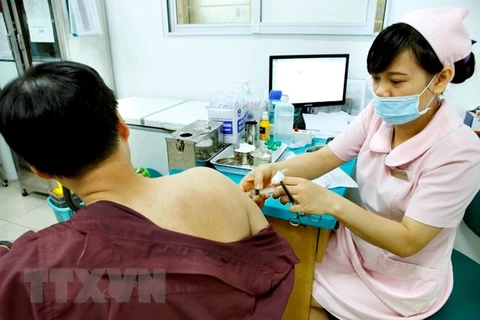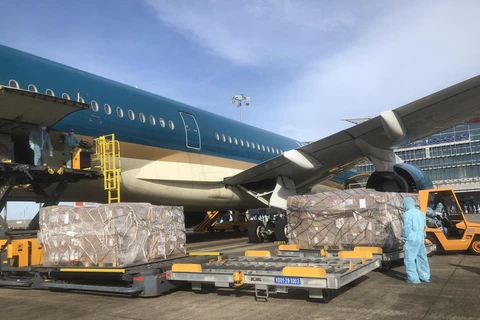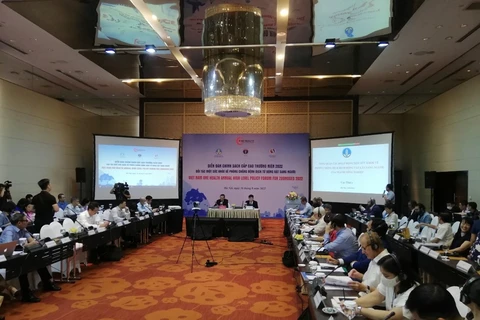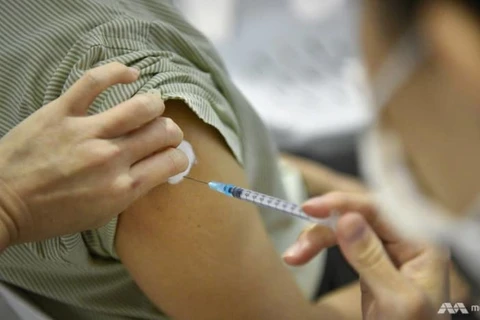 President of Singapore Halimah Yacob and delegates open the 7th World One Health Congress in Singapore (Photo: World One Health Congress)
President of Singapore Halimah Yacob and delegates open the 7th World One Health Congress in Singapore (Photo: World One Health Congress) Tedros Adhanom Ghebreyesus, Director-General of the World Health Organisation (WHO), said about 70% of all emerging pathogens have a zoonotic source. Irresponsible land use, deforestation and climate change all increase the risk of new pathogens spilling over from wildlife and domestic animals to humans.
“We can only truly make the world safer if we address these underlying drivers of epidemics and pandemics,” he said.
This is also the message that 120 speakers from 60 countries have delivered at the 7th World One Health Congress (WOHC) that took place from November 7-11 in Singapore.
Temasek Foundation hosted Pinnacle Series focusing on readiness to combat public health threats in Asia, particularly Southeast Asia, which will run alongside the main Congress from 8 to 10 November.
Challenges from infectious diseases
Southeast Asia remains a hot spot for emerging infectious diseases. The region is home to concentrated population centres with high levels of socio-economic diversity and mobility, diverse human and animal health system capacities, one of the highest rates of deforestation globally, and climate shifts that impact humans, animal and vector ecologies, according to experts.
Assoc. Prof. Dr. Le Van Tan, Head of Emerging Infections Group at Oxford University Clinic Research Unit in Vietnam, told VietnamPlus that Vietnam and other countries are facing significant challenges in terms of infectious diseases.
Specifically, COVID-19 is still a pandemic and the uncertain evolution of SARS-CoV-2 is a matter of concern, said Tan, who is also a speaker at the WOHC, adding that besides, challenges come from infectious diseases such as dengue fever, hand-foot-mouth disease.
According to Tan, in Southeast Asia, every 2-3 years, there is a large outbreak of hand-foot-mouth disease causing many severe cases among children under 5 years old, which is also a matter that Vietnam and the region need to pay attention to.
On the other hand, the risk also comes from vaccine-preventable diseases. According to the WHO’s statistics, due to the impact of the COVID-19 pandemic, in 2021, about 25 million children under one year old worldwide were not fully vaccinated with basic vaccines, increasing the risk of outbreaks of these diseases.
Meanwhile, countries face the risk of other unknown emerging infections, known as Disease X (as called by the WHO), as well as antimicrobial resistance.
In that context, Assoc. Prof. Dr. Le Van Tan emphasised that multidisciplinary and transnational cooperation is extremely important, as pandemics can occur at any time in an open and integrated world.
Building long-term cooperative relationships will be the foundation of multidisciplinary and transnational cooperation. On the other hand, funding for key scientific research projects with multinational cooperation is also an extremely important factor to soon ‘decipher’ and neutralise epidemics. Along with that, the coordination, exchange and sharing of information between sides is also a driving force to jointly develop and maximise transnational research projects in the region and the world, Tan affirmed.
He highlighted the role of media, reflected in the response to the COVID-19 pandemic recently. Media agencies and newspapers need to continue promoting their role, providing information in a timely and accurate manner so as to join efforts to fight challenges on epidemics.
Joining hands to decipher and repel epidemics
The 7th World One Health Congress (WOHC) held by SingHealth Duke-NUS Global Health Institute (SDGHI) brought together more than 1,400 in-person participants and 1,000 virtual attendees from academic institutions, civil society, government bodies, private sector and multilateral organisations around the world to share urgent and emerging issues, including epidemiology and disease surveillance, animal production and trade, food safety, human health and global health security.
Themed ‘Integrating Science, Policy and Clinical Practice: A One Health Imperative Post-COVID-19', this year’s congress aims to promote multi-sectoral efforts and collaboration that advance a 'whole of society' approach and perspective to health hazards and the management of risks. Participants focused their discussions on five distinct scientific tracks, spanning themes from One Health Science to Pandemic Preparedness and Health Systems Resilience.
Halimah Yacob, President of Singapore - the host of this year’s congress, delivered an opening speech, in which she hailed the sharing of research results and genetic sequences of viral strains by scientists, along with the efforts of governments to support multilateral vaccine initiatives such as the Covax, saying that they allow the expansion of vaccination programmes to the community with a remarkable speed, thus contributing to reducing the risk of serious illness and repelling the COVID-19 pandemic.
Even as the pandemic subsides, the world should begin to prepare for the next disease X, which could be even more devastating, she said, while highlighting the maintenance of interdisciplinary collaboration between scientists as well as cross-border efforts of governments in supporting initiatives, research, and strengthening the resilience of the health system.
She revealed that Singapore has launched a programme for research in epidemic preparedness and response with a research funding of up to 100 Singapore dollars over five years. The programme also sets up cooperation networks in the region to mitigate and prevent future epidemic threats.
The 8th World One Health Congress will take place in South Africa in 2024./.

























